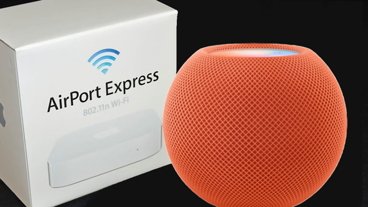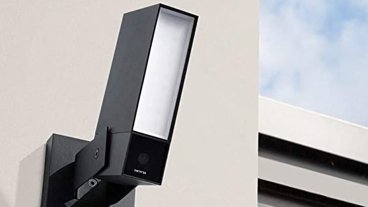In a statement sent to AppleInsider, NVIDIA took Intel's allegations head-on and attempted to recast the issue as a transition between old and new technologies, insisting that a patent license agreement it signed with the chipmaker back in 2004 affords it the right to develop chipsets for both current and future generations of Intel processors.
"We are confident that our license, as negotiated, applies," said NVIDIA president and chief executive Jen-Hsun Huang. "At the heart of this issue is that the CPU has run its course and the soul of the PC is shifting quickly to the GPU."
"This is clearly an attempt to stifle innovation to protect a decaying CPU business," he added.
Intel, which sued the graphics technology leader in Delaware Chancery Court earlier this week, begs to differ. The world's largest chipmaker maintains that the 2004 agreement does not cover chipsets compatible with its forthcoming line of 'Nehalem' processors that incorporate integrated memory controllers, for which it believes NVIDIA is planning a new round of supporting chipsets.
For its part, NVIDIA claims to have tried for over a year to resolve the dispute between the two Santa Clara, Calif.-based firms "in a fair and reasonable manner." It chalks the lawsuit up to an act of desperation now that GPUs have gained prominence at the expense of traditional processors, such as those manufactured by Intel.
"Since signing the agreement, NVIDIA has offered innovations such as SLI, Hybrid power, and CUDA parallel processing. ION, the most recent innovation, integrates a powerful NVIDIA GPU, north bridge and south bridge into one compact die," NVIDIA said. "When combined with a CPU, ION enables a two-chip PC architecture for Intel processors two years ahead of Intel’s own solution."
NVIDIA also pointed to Apple's embrace of its new MCP79 chipset platform for its entire new line of notebooks including the MacBook Classic, MacBook Air, MacBook and MacBook Pro. The Mac maker was the first mainstream vendor to drop chipsets developed by Intel for those manufactured by NVIDIA. The move is believed to be a long-term technology shift on Apple's part, one which would be placed in jeopardy should Intel ultimately prevail with its lawsuit.
"Today, companies like Acer, Alienware, Asus, Dell, Falcon Northwest, Fujitsu, Gigabyte, HP, Lenovo, MSI, NEC, and Toshiba all ship exciting innovations created by NVIDIA as a result of its agreement with Intel," Huang said. "[G]iven the broad and growing adoption of NVIDIA's platform innovations, it is not surprising that Intel is now initiating a dispute over a contract signed four years ago."
In the one shred of common ground surrounding the matter, both companies agree that their respective and current products are not part of this dispute. An Intel spokesperson told AppleInsider that the company hopes the two tech giants can continue to do business together going forward.
 Kasper Jade & Zach Spear
Kasper Jade & Zach Spear






-m.jpg)






 Charles Martin
Charles Martin

 Malcolm Owen
Malcolm Owen
 William Gallagher
William Gallagher

 Christine McKee
Christine McKee
 Wesley Hilliard
Wesley Hilliard









13 Comments
The thing that worries me about this is that nVidia is "talking trash" rather than replying in substance. Typically, in any dispute of this type, the one talking the trash has the weakest position and is making a big noise to cover that fact up. If you see two guys arguing in the street, the one talking the loudest and meanest is always the one that's in the wrong.
That being said, Jen Hsun Wang has some kind of reputation for this kind of language so maybe not. But if the crucial point is whether or not the license is limited to the current chipset or future chipsets, that doesn't seem like an issue that would be unclear in any way. It should be set out in clear language in the contract that can be pointed to and the fact that nVidia hasn't pointed to it yet is kind of worrying.
I think I'm with Nvidia on this one. If their is an agreement and Nvidia isn't violating Intel's IP. The only reason Intel would file a lawsuit is because Nvidia is beating them at their own game.
Well shit, NVIDIA... you didn't actually expect them to compete, did you?
Regardless of which side is correct, why does Intel suck at GPU design????? Maybe they should answer that question first.
The biggest problem is that when Apple decides to switch its notebooks to a Nehalem-based processor (which will come at the end of this year), it will be forced to go with Intel's crappy graphics. The only mobile chip Intel will release that doesn't come with integrated graphics packaged with the chip is the quad-core Clarksfield, which is too hot for most Apple notebooks. Going back to Intel graphics will be a huge downgrade, unless they go with discrete graphics, which hurts battery life.